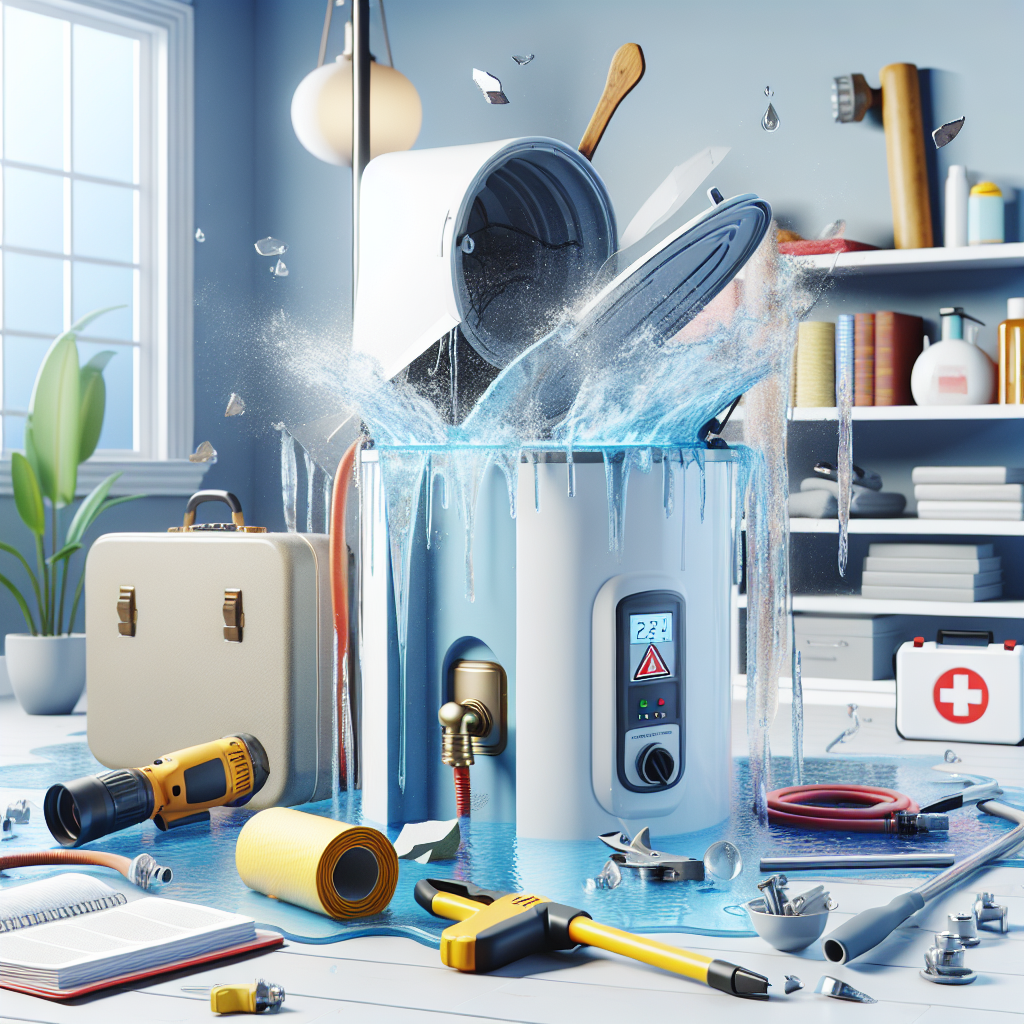A sudden water heater failure can disrupt your daily routine and throw your household into disarray. Understanding how to respond to this unexpected emergency can save you time, money, and a lot of stress. In this guide, we’ll walk you through the essential steps to take if your water heater breaks, how to mitigate damage, and tips on preventing future mishaps.
Recognizing the Signs of a Failing Water Heater
Before your water heater completely malfunctions, there are often warning signs. Knowing what to look for can help you act quickly. Here are some common indicators:
- Strange Noises: If you hear banging, popping, or hissing noises coming from your water heater, it may indicate sediment build-up, which could lead to failure.
- Leaking Water: Puddles or moisture around the base of your water heater are red flags. A leak can eventually cause significant water damage to your home.
- Inconsistent Hot Water: If your hot water supply is sporadic, it could suggest that your water heater is struggling to perform its job effectively.
Recognizing these signs early could make a world of difference!
Immediate Steps to Take in an Emergency
When your water heater unexpectedly breaks down, it’s crucial to act promptly. Here’s a step-by-step guide you can follow:
Step 1: Turn Off the Power Supply
If you have an electric water heater, switch off the power at the circuit breaker. For gas units, turn off the gas supply to prevent accidents.
Step 2: Shut Off the Water Supply
Locate the cold water supply valve, typically found at the top of your water heater, and turn it off. This will prevent further leakage and minimize water damage.
Step 3: Drain the Water Heater
If your water heater is leaking, it’s essential to drain the tank to prevent additional flooding. Attach a hose to the drain valve and direct it outside or to a floor drain. Keep in mind to exercise caution during this step to avoid injury from hot water.
Step 4: Assess the Situation
After safety precautions have been taken, assess the extent of the damage. Is it a minor issue that you can fix, or do you require professional help?
When to Call a Professional
Some water heater issues require expertise that goes beyond basic repairs. Here are scenarios when you should contact a plumber:
- Major Leaks: If you notice significant pooling water that you cannot manage with a hose, get help immediately.
- Complete Failure: If your water heater is entirely unresponsive, a professional will be necessary for both diagnosis and repairs.
- Complex Issues: If there are electrical or gas line issues involved, it’s best to leave it to the professionals.
Preventive Measures for the Future
Dealing with a broken water heater can be very stressful, but there are steps you can take to minimize the chances of it happening again.
Regular Maintenance
One of the best ways to ensure your water heater’s longevity is through regular maintenance. Schedule annual inspections with a licensed plumber to check for sediment accumulation, leaks, and overall performance.
Flush Your Tank Yearly
Flushing your water heater tank annually can help prevent sediment buildup that can lead to malfunctions. This simple task involves draining a few gallons of water from the tank to clear out any residue.
Insulate Your Heater
If you live in a colder climate, insulating your water heater can improve efficiency and longevity. Additionally, it can prevent issues associated with freezing temperatures.
Conclusion: Stay Calm and Prepared
When your water heater breaks, keeping a level head is key. By following the steps outlined in this article, you can tackle the emergency efficiently and reduce potential damage to your home. Regular maintenance and prompt action at the first sign of trouble will go a long way in ensuring that your water heater serves you well for years to come.
Being prepared is half the battle. Make sure you have a plan in place, so when emergencies strike, you’ll know exactly what to do!
By incorporating these practical tips and understanding the risks involved, you can easily navigate the unfortunate challenge posed by a broken water heater. With the right preparation, you won’t just survive the setback—you’ll come out stronger and better equipped for the future!


